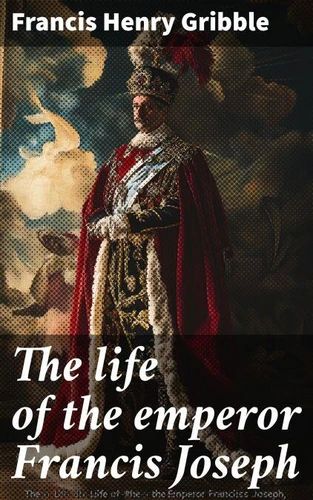Ponies past and present
Par :Formats :
Disponible dans votre compte client Decitre ou Furet du Nord dès validation de votre commande. Le format ePub est :
- Compatible avec une lecture sur My Vivlio (smartphone, tablette, ordinateur)
- Compatible avec une lecture sur liseuses Vivlio
- Pour les liseuses autres que Vivlio, vous devez utiliser le logiciel Adobe Digital Edition. Non compatible avec la lecture sur les liseuses Kindle, Remarkable et Sony
 , qui est-ce ?
, qui est-ce ?Notre partenaire de plateforme de lecture numérique où vous retrouverez l'ensemble de vos ebooks gratuitement
Pour en savoir plus sur nos ebooks, consultez notre aide en ligne ici
- Nombre de pages200
- FormatePub
- ISBN859-65--4786707-4
- EAN8596547867074
- Date de parution24/04/2025
- Protection num.Digital Watermarking
- Taille1 Mo
- Infos supplémentairesepub
- ÉditeurGOOD PRESS
Résumé
In "Ponies Past and Present, " Walter Sir Gilbey provides a thorough exploration of pony breeds, their historical significance, and their evolution over time. The book is notable for its blend of rigorous scholarship and engaging prose, utilizing a narrative style that is both informative and captivating. Gilbey meticulously situates ponies within the context of British equestrian culture, investigating their roles in agriculture, transportation, and leisure.
His use of vivid descriptions and historical anecdotes adds depth to his examination, making it not only a reference work but a piece of historical literature that appeals to both enthusiasts and scholars alike. Walter Sir Gilbey (1831-1914) was a notable English painter and author, deeply entrenched in rural life and equestrian affairs. His background as a landowner and farmer provided him with firsthand experience of the importance of ponies in everyday practices.
Moreover, his passion for horse breeding and his involvement in the equestrian community inevitably influenced his writing. To Gilbey, ponies represented not just animals, but a fundamental aspect of British heritage that required documentation and celebration. "Ponies Past and Present" is a recommended read for anyone interested in equine history or rural British culture. Gilbey's authoritative voice, combined with his affection for ponies, creates a compelling narrative that invites readers to reflect on the significance of these remarkable creatures in shaping human experiences.
His use of vivid descriptions and historical anecdotes adds depth to his examination, making it not only a reference work but a piece of historical literature that appeals to both enthusiasts and scholars alike. Walter Sir Gilbey (1831-1914) was a notable English painter and author, deeply entrenched in rural life and equestrian affairs. His background as a landowner and farmer provided him with firsthand experience of the importance of ponies in everyday practices.
Moreover, his passion for horse breeding and his involvement in the equestrian community inevitably influenced his writing. To Gilbey, ponies represented not just animals, but a fundamental aspect of British heritage that required documentation and celebration. "Ponies Past and Present" is a recommended read for anyone interested in equine history or rural British culture. Gilbey's authoritative voice, combined with his affection for ponies, creates a compelling narrative that invites readers to reflect on the significance of these remarkable creatures in shaping human experiences.
In "Ponies Past and Present, " Walter Sir Gilbey provides a thorough exploration of pony breeds, their historical significance, and their evolution over time. The book is notable for its blend of rigorous scholarship and engaging prose, utilizing a narrative style that is both informative and captivating. Gilbey meticulously situates ponies within the context of British equestrian culture, investigating their roles in agriculture, transportation, and leisure.
His use of vivid descriptions and historical anecdotes adds depth to his examination, making it not only a reference work but a piece of historical literature that appeals to both enthusiasts and scholars alike. Walter Sir Gilbey (1831-1914) was a notable English painter and author, deeply entrenched in rural life and equestrian affairs. His background as a landowner and farmer provided him with firsthand experience of the importance of ponies in everyday practices.
Moreover, his passion for horse breeding and his involvement in the equestrian community inevitably influenced his writing. To Gilbey, ponies represented not just animals, but a fundamental aspect of British heritage that required documentation and celebration. "Ponies Past and Present" is a recommended read for anyone interested in equine history or rural British culture. Gilbey's authoritative voice, combined with his affection for ponies, creates a compelling narrative that invites readers to reflect on the significance of these remarkable creatures in shaping human experiences.
His use of vivid descriptions and historical anecdotes adds depth to his examination, making it not only a reference work but a piece of historical literature that appeals to both enthusiasts and scholars alike. Walter Sir Gilbey (1831-1914) was a notable English painter and author, deeply entrenched in rural life and equestrian affairs. His background as a landowner and farmer provided him with firsthand experience of the importance of ponies in everyday practices.
Moreover, his passion for horse breeding and his involvement in the equestrian community inevitably influenced his writing. To Gilbey, ponies represented not just animals, but a fundamental aspect of British heritage that required documentation and celebration. "Ponies Past and Present" is a recommended read for anyone interested in equine history or rural British culture. Gilbey's authoritative voice, combined with his affection for ponies, creates a compelling narrative that invites readers to reflect on the significance of these remarkable creatures in shaping human experiences.



